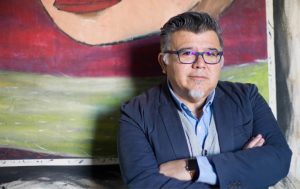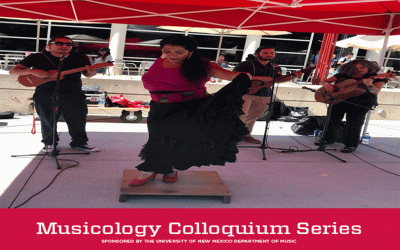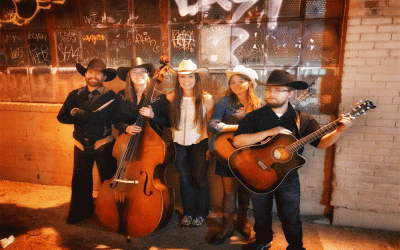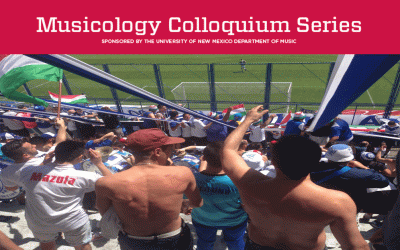Santiago Vaquera-Vásquez
Date:
Thursday, September 28th, 2017
Time and Location:
2:00-3:30pm, Waters Room, Zimmerman Library
Lecture Title:
Imagining Something Better: Punk, Tejano, La Bamba, and Other Rolas from My Border Hi-Fi
Description:
With a focus on narrative soundscapes from borderlands communities, this presentation reflects on the ways that music —in particular, Chicana/o punk— can examine complicity, entanglement and compromise in relation to nation, identity, migration and globalization.
 Unrepentant border crosser, writer, ex-dj, and academic. Santiago Vaquera-Vásquez is an Associate Professor of US Southwestern Literatures, and Creative Writing in the Department of Spanish, and Portuguese at the University of New Mexico. Has lectured and taught at universities across the United States, Latin America, and Europe. Author of four collections of short stories, Algún día te cuento las cosas que he visto (2012), Luego el silencio (2014), One Day I’ll Tell You the Things I’ve Seen (2015), and En el Lost ‘n Found (2016). His academic work focuses on US Latino cultural expression, and US/Mexico border cultures.
Unrepentant border crosser, writer, ex-dj, and academic. Santiago Vaquera-Vásquez is an Associate Professor of US Southwestern Literatures, and Creative Writing in the Department of Spanish, and Portuguese at the University of New Mexico. Has lectured and taught at universities across the United States, Latin America, and Europe. Author of four collections of short stories, Algún día te cuento las cosas que he visto (2012), Luego el silencio (2014), One Day I’ll Tell You the Things I’ve Seen (2015), and En el Lost ‘n Found (2016). His academic work focuses on US Latino cultural expression, and US/Mexico border cultures.
Sones de allá para acá: Son Jarocho from Mexico to USA
Son Jarocho is a genre of traditional Mexican music performed in southern Veracruz that has gained prominence in Chicanx communities in the United States. In this talk we will analyze the origins, rhythms, musical forms, and dances both in Mexico and the United States.
UNM Music Students and Community Members to Perform on KUNM 89.9 on 5/11 @7 pm
The UNM Honky Tonk Ensemble, an ensemble that teaches students how to play in a band and that emphasizes the style of classic country music from the ’50s, ’60s and ’70s, to come into KUNM’s Studio A to do a studio session of songs they’ve performed over the course of the semester
Embodying Fandom: Chanting in Twentieth-Century Argentine Soccer
Argentine soccer fandom involves a nuanced set of bodily practices and a vast repertoire of chants based on radio hits and broadcast advertisement. This talk demonstrates how chanting brings together sounds and bodies in an affective public practice that incites intense feelings of social cohesion and belonging meaningful beyond what is being said with words.



